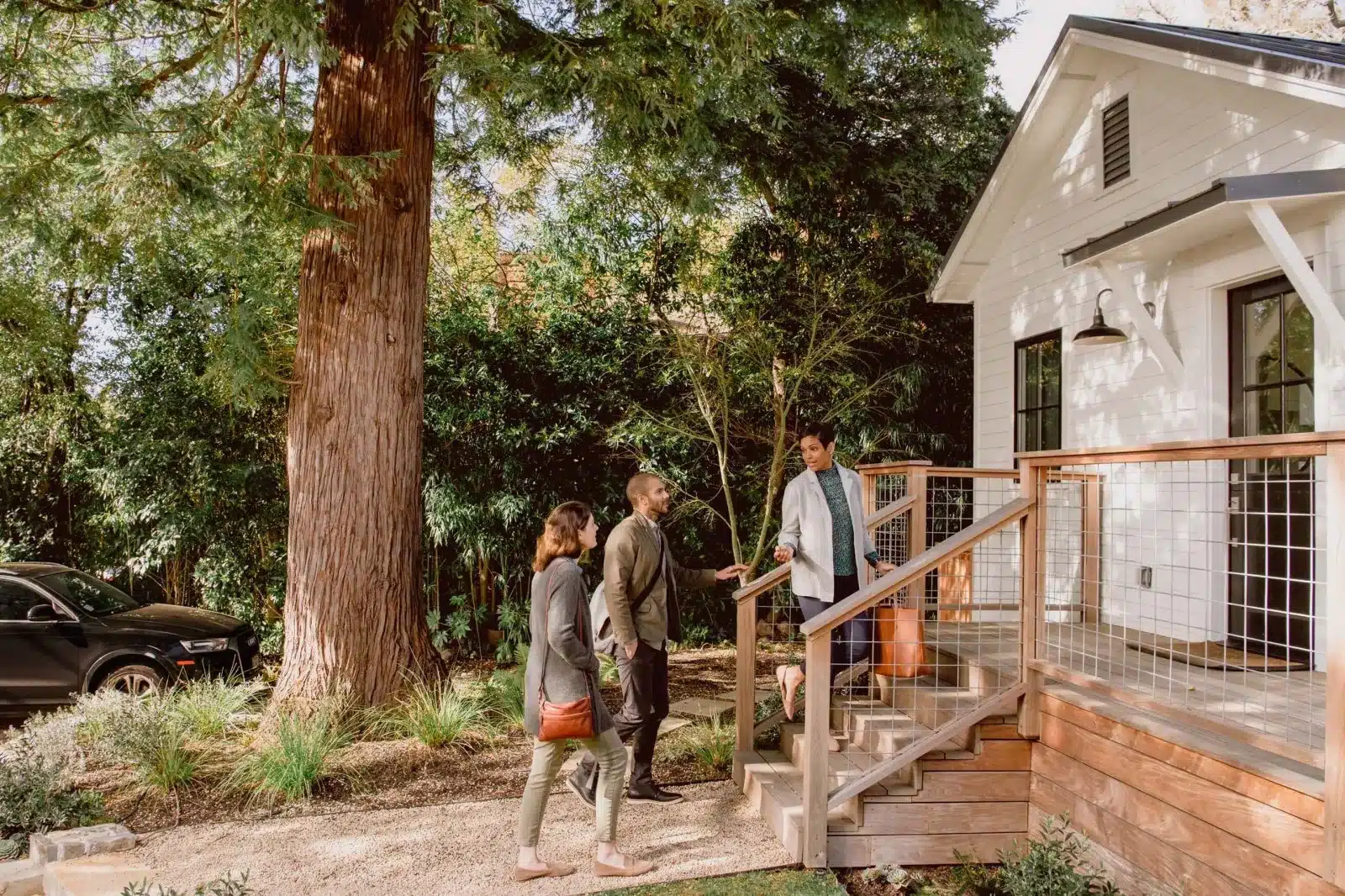Buying your first home is exciting, right? You imagine yourself in that perfect room, painting the walls, setting up your ideal kitchen, and maybe even starting a garden. Before you begin choosing throw pillows, we need to talk about what it takes to make that dream a reality.
It’s not rainbows and unicorns, but you’ll be more prepared to make smart choices with a little guidance. So, let’s begin.
Learning the Homebuying Process
Well, you’ve made up your mind to buy your home. But hold on—where on earth do you begin? It can be disorienting, but the process isn’t too hard to follow once you divvy it up.
First, you’ll need to find an estate agent to help you through the process. They have the market sorted out and will be your guide for all kinds of things, from looking at the houses to negotiations. Next is the fun part: house hunting! You’ll probably look at a few houses before you’ve got “the one.” Once you have your dream house, it’s time to make an offer.
Then you’ll enter the world of inspections, appraisals, and closing documents. It’s a lot, but you’re getting closer to that front door of your dream home with each step. Keep your chin up; you’re on your way!
Setting a Budget: What You Can Afford

Before you start fantasizing about your new kitchen, you should set your budget. How much house can you actually afford to pay without going over your head? It’s not just a question of the asking price—factor in taxes, insurance, and maintenance as well.
You don’t want to fall in love with a mansion and find that the monthly payment is much more than you can handle.
A rough rule of thumb is not to spend more than 28-30% of your gross monthly income on housing. You can use online calculators as a rough estimate of how much you can afford, but the best way to be absolutely sure is by sitting down with a financial advisor or mortgage lender. It’s always safest to be realistic from the start rather than be surprised later!
The Importance of Credit Score
Did you know your credit score plays a big role in purchasing homes? Of course, it might affect the mortgage rates you qualify for and the overall interest you will pay. If your credit score is satisfactory, great job! You are supposed to receive better rates. However, if your credit is a bit less than stellar, now’s the time to attempt to set it right.
Be certain to check your score before you start house hunting. If it’s lower than you’d like, spend a few months bringing it up to speed—pay off debt, pay off any outstanding bills, or dispute any inaccuracy on your report. It’ll take a while, but it will save you a ton of cash in the long run. And who doesn’t like saving money?
Research Home Loans and Mortgages
Not many first-time buyers will be pulling out cold, hard cash from their pockets (if so, good luck!). Instead, you will probably have to use a home loan or mortgage to help finance it.
There are some loans available, and what you’ll use will depend on your situation. The most common are traditional loans, but if you’re a veteran or in the active military, you can get a VA loan with better terms. FHA loans are ideal for individuals who don’t have much money saved up for a down payment. The secret here is to compare and shop for interest rates so you can do what works best for you.
You will also need to get pre-approved for a loan. It sounds daunting, but it’s very straightforward. A lender will carefully scrutinize your finances and let you know how much you can borrow. This gives you a greater sense of how much you can afford and presents you to sellers as more serious.
And did you realize that you could apply online for a home loan? It’s a convenient means of starting the process without stepping outside your door or waiting in lines.
Choosing the Right Neighborhood
Okay, now you have your budget and your loan, but where do you reside? The neighborhood is almost as important as the house itself. You wouldn’t want to reside where you’re isolated from work or don’t have the amenities you need.
When choosing a neighborhood, think about your lifestyle. Do you want to be close to good schools? Or you’d like to be near restaurants, shops, or public transport. If you prefer peaceful nights out, you should avoid crowded city centers. Take time to get familiar with different areas, and don’t forget to look into crime statistics, local amenities, and even planned development schemes. After all, you’re not buying a house—you’re buying into a community.
The Home Search: What to Look For

Now that you know where you’d like to live, it’s time to buy a house! But wait, what are you even searching for? Start by considering your needs. How much space will you need? Will you need extra rooms for a family member at work or in a home office area? Don’t forget to also consider long term, too—will this house be suitable for you in five or ten years?
When you notice a house that you are interested in, you should have it inspected. This will save you from buying a house with secret flaws, like a leaky roof or faulty pipes. It is an extra cost, but it is worth it to avoid major headaches down the road.
Offering and Negotiation Tips
Found the one? Awesome! Now you get to make an offer. You’ll probably work with your real estate agent to decide on a good price based on the house’s market value. But don’t be shy to negotiate. If the house needs repairs or isn’t priced just right, you can often negotiate the price down or get the seller to cover some expenses.
Something to remember is that the seller won’t necessarily take your initial offer, and that’s fine. Home shopping is a give-and-take situation, so have some wiggle room to negotiate. Don’t panic, and do try to remember the bigger picture.
Closing the Deal
Once your offer is accepted, you’re not quite done yet. Now comes the fun part: closing! During this stage, you’ll sign a bunch of paperwork and pay closing costs. You’ll also do a final home walkthrough to ensure everything is in order.
This is where your lender will finalize the mortgage, and you’ll officially become a homeowner. It’s a lot of paperwork, but once you’re done, you’ll get the keys to your new home. Welcome to the club!
Moving In and Beyond
You did it! You’re officially a homeowner. But the journey doesn’t end at closing. Moving in is a whole process on its own—packing, unpacking, setting up utilities, and maybe a few trips to the hardware store for last-minute fixes.
And don’t forget, homeownership is a constant commitment. Be sure to maintain the property, pay your mortgage, and always plan for home expenses. The house may be yours today, but maintenance is the key to its enjoyment in years to come.

